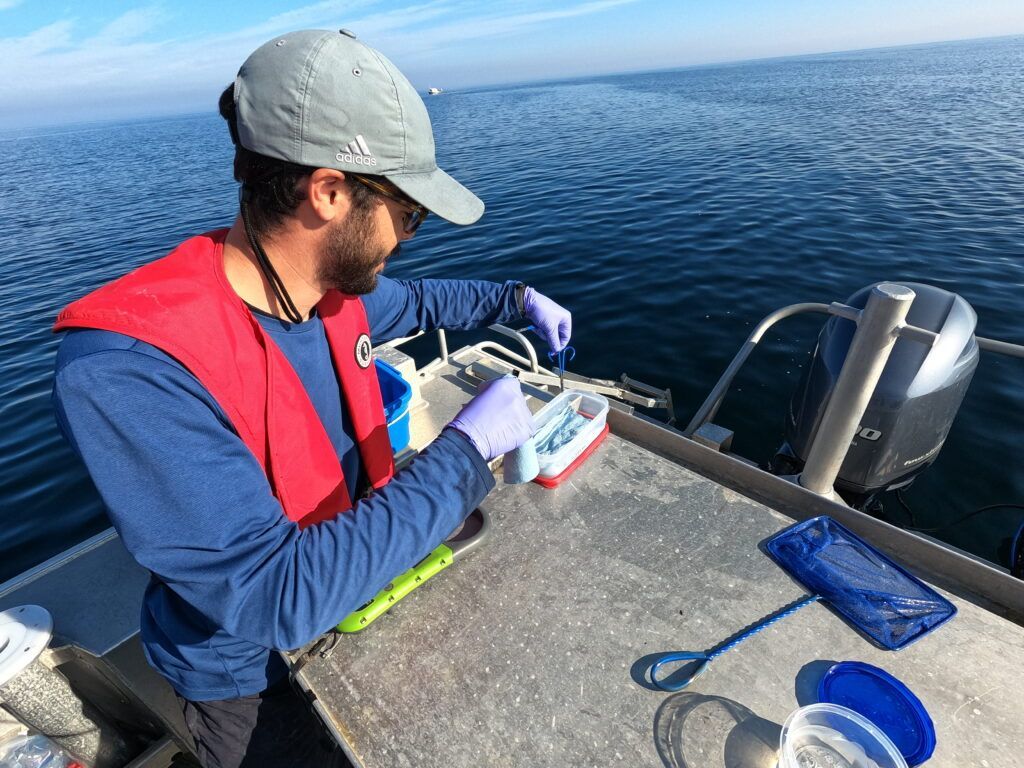
While microtrolling shows that resident Chinook are an important part of the Strait of Georgia, food web, the timing of this outmigration to the continental shelf is unknown as are the individual factors that influence whether a Chinook remains in the Strait or undertakes this migration. To start to unravel these mysteries Wesley Greentree is conducting an acoustic tagging study for his UVic masters research.
Acoustic tags, unlike PIT tags used throughout the Bottlenecks to Survival Program, have a finite battery life, but offer greater resolution on a fish’s whereabouts in proximity to acoustic receivers. Wesley and the Bottlenecks Team surgically implanted acoustic tags in first ocean winter Chinook captured by microtrolling in the northern Strait of Georgia in October and January. A PIT tag is also inserted into the fish’s belly to provide clues if the migration strategy affects survival to return to one of the rivers outfitted with PIT antenna arrays. Acoustic receivers in the Strait of Georgia and the exits of the Salish Sea will detect the movement of tagged individuals within and out of the Salish Sea until the end of their second ocean winter. The results of this study will be relevant to the management of important salmon fisheries in the Strait of Georgia and will also fill knowledge gaps about the nature and causes of differential migration strategies.
Learn more about the project in this short video. And learn about the latest results in this 2023 newsletter.